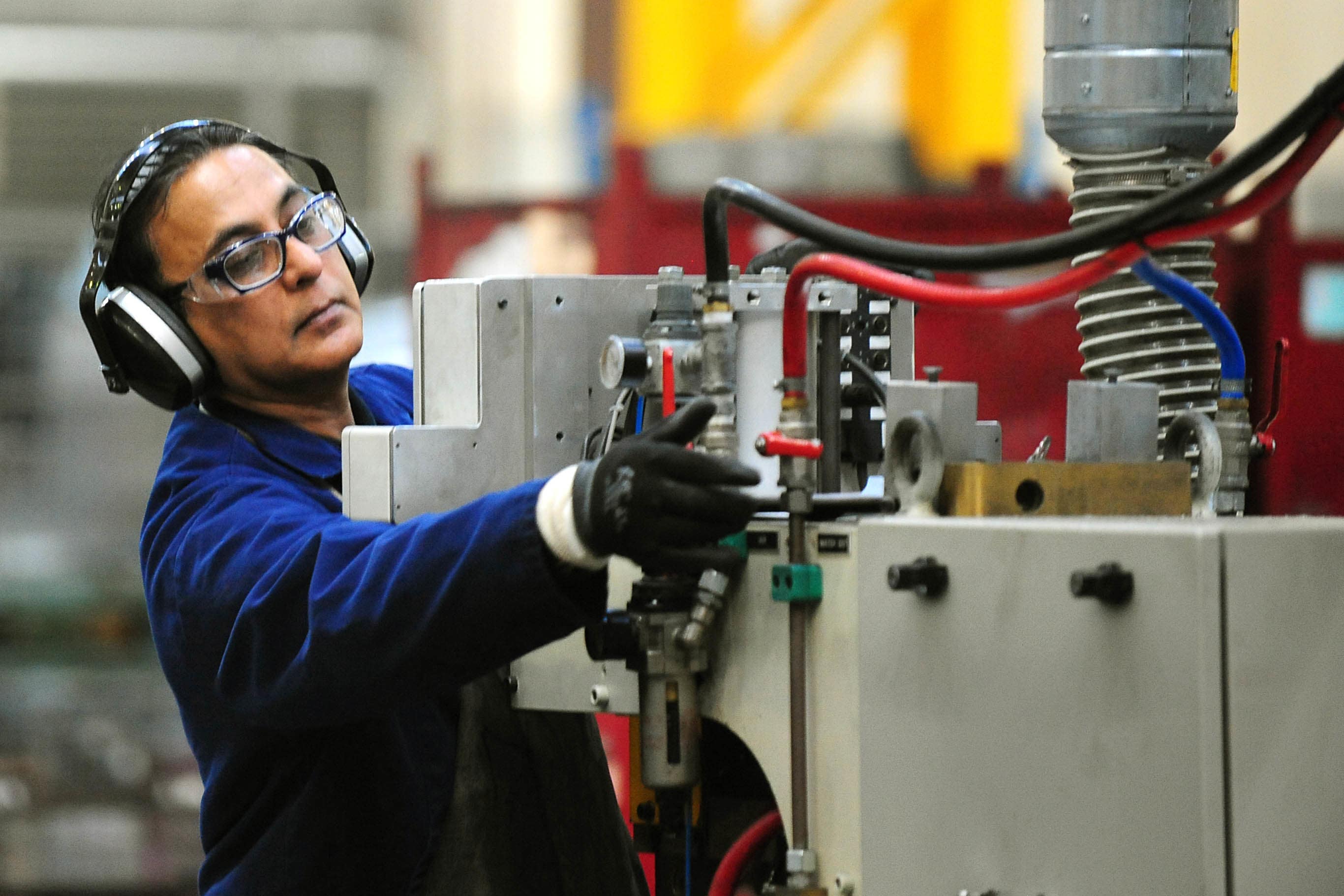UK manufacturing sinks to six-month low amid demand slump
But manufacturers’ input costs fell at the sharpest rate since 2016, a ‘symptom’ of weak demand, the influential survey found.

The UK’s manufacturing sector has shrunk to a six-month low as producers continue to battle lacklustre demand at home and overseas, leading to nearly a year of decline.
But manufacturers’ input costs fell at the sharpest rate since 2016, a “symptom” of weak demand, the influential survey found.
The closely watched S&P Global/CIPS UK Manufacturing PMI survey showed a reading of 46.5 in June, down from 47.1 in May, but coming in slightly ahead of economists’ expectations.
A score below 50 shows the sector has contracted, while anything above 50 indicates growth.
The survey has shown a negative reading for 11 months in a row, as the downturn facing the sector deepens.
The UK manufacturing sector continued to report recessionary conditions in June
Levels of output, new orders and employment all declined during June, despite signs that price and supply pressures were easing.
Manufacturers came up against weak demand in both domestic and overseas markets, leading to a sharp decline in new orders and a reluctance among customers to commit to new contracts, the report found.
Weaker interest from regions including the US, China, Europe and Brazil brought down exports, while foreign demand declined for the 17th month in a row and at the fastest rate all year.
Meanwhile, fewer new orders led producers to reassess their staffing levels, driving down employment further. Job losses also reflected weaker demand, redundancies and cost saving initiatives, according to the survey.
Rob Dobson, director at S&P Global Market Intelligence, said: “The UK manufacturing sector continued to report recessionary conditions in June.
“Producers are being hit by weak domestic and export market conditions with clients showing a greater reluctance to commit to spending due to market uncertainty, increased competition and elevated costs.”
Nevertheless, manufacturing backlogs eased during the month and supply chain wait times shortened, in a welcome improvement of conditions for companies, the survey found.
Furthermore, producers’ input costs came down at the fastest rate since early 2016, due to softer demand and decreasing commodity prices.
That drying up of new work from domestic and export markets, along with continued destocking, is holding back UK manufacturing output - threatening jobs and investment
But the factors “remain a symptom of the current weakness of demand faced by the sector and are therefore unlikely to play a role in boosting production moving forward”, Mr Dobson said.
“Manufacturers therefore remain in defence mode, looking to cut back spending on purchasing and employment wherever possible and release capital tied up in stocks.”
Glynn Bellamy, the UK head of industrial products for KPMG, added: “That drying up of new work from domestic and export markets, along with continued destocking, is holding back UK manufacturing output – threatening jobs and investment.”
Bookmark popover
Removed from bookmarks